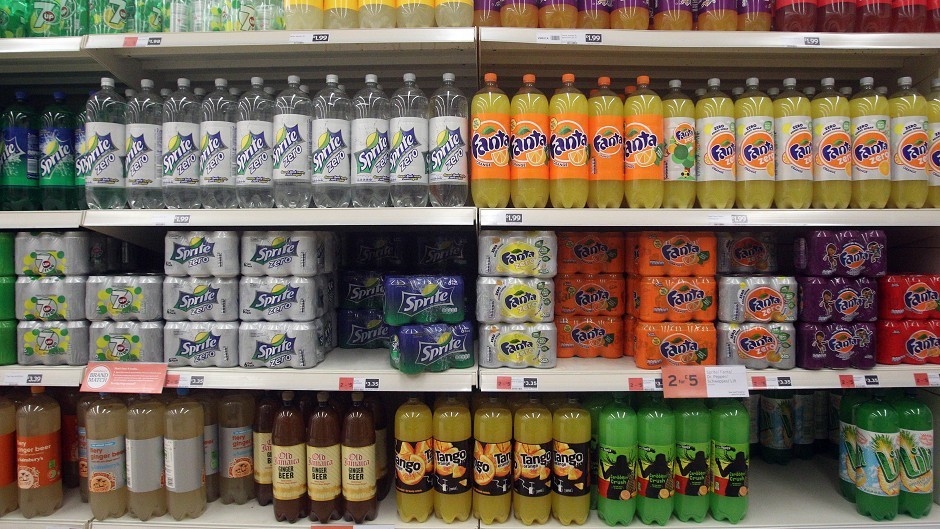George Osborne’s soft drinks tax could lead to people consuming more sugar, according to economic think tank the Institute for Fiscal Studies.
IFS director Paul Johnson said less than one fifth of total sugar consumption comes from sugary drinks.
The new levy will therefore have no impact on the other 80%, he added.
And he suggested this could increase as people substitute with other sugary products.
Introducing the IFS’s Budget briefing, he also questioned the structure of the tax, which rises in proportion to the amount of sugar.
Split into two bands, it will be levied against firms which produce sugar-sweetened drinks and will be introduced in two years to give them a chance to drive down their sugar content.
One is for products with five grams of sugar or more per 100 millilitres and the second for drinks containing eight grams within the same quantity.
It is expected to raise £520million which will be used to double the funding for sport in every primary school, with secondaries encouraged to offer more sport as part of longer school days.
Treasury sources dismissed the suggestion some people might substitute with food products such as chocolate, insisting “hunger and thirst are two different things”.
In his remarks, Mr Johnson also cast doubt on the calculations Mr Osborne used to get his budget forecast into surplus by 2019-20.
He said the chancellor was “running out of wriggle room” and warned that any further deterioration in the public finances would mean he would be forced to make “genuinely big” tax rises or spending cuts.
But yesterday, Mr Osborne played down this suggestion, insisting he would be able to meet his self-imposed target, although he acknowledged he would have to “alter” his plans if there was another recession.
“There is a commitment to reach a budget surplus in normal times,” he stressed.
In Wednesday’s Budget, the chancellor was forced to announce tens of billions of additional borrowing after the Office for Budget Responsibility (OBR) sharply downgraded its outlook for the economy.
